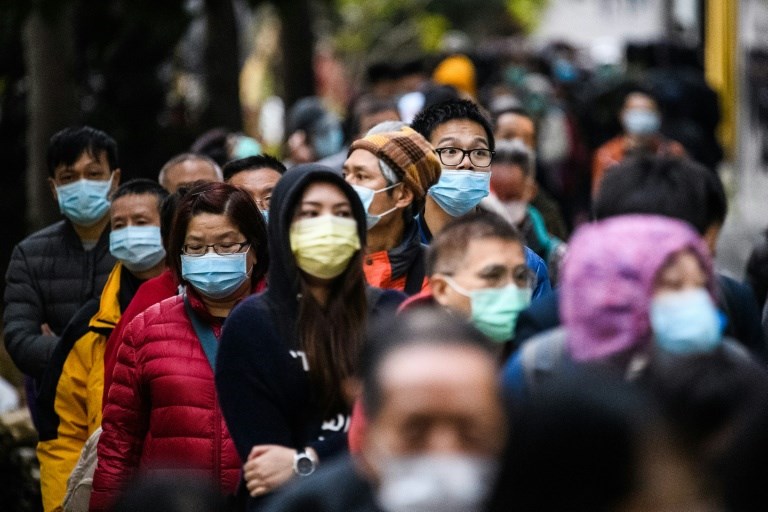Hong Kong on Friday said it will deploy an army of volunteers to bolster plans to forcibly quarantine all arrivals from mainland China, warning that anyone caught breaching the new rules faces up to six months prison.
In a major escalation of its battle against the new coronavirus, the international finance hub has said anyone arriving from the mainland from Saturday will have to undergo 14 days compulsory quarantine.
Officials hope the new measures will virtually halt all cross-border traffic while allowing the city to remain stocked with food and goods from the mainland where the virus has killed more than 600 people.
Cabinet ministers unveiled the quarantine plans just six hours before the new policy was due to come on.
Hong Kong residents arriving from mainland China will be allowed to self-quarantine at home. Chinese and international visitors will be able to self-quarantine at hotels or any other accommodation they have arranged.
"If they cannot arrange accommodation, they will be taken to the temporary facilities prepared by the government," health secretary Sophia Chan said.
Anyone who has been to mainland China in the past 14 days and then flies into Hong Kong from another destination will also be quarantined.
Officials -- backed by volunteers from the civil service and some students -- will conduct spot checks or make daily phone calls to ensure people were staying at home.
Those caught breaking their quarantine face up to six months in jail and a HK$25,000 ($3,200) fine.
"We will be stopping a lot of people with the new measures," Security Minister John Lee said.
- Panic buying -
The new regulations have been enacted under a sweeping emergency law that allows city leaders to bypass the legislature during a disease outbreak.
Exemptions would be made for a variety of key jobs, including flight and shipping crews as well as cross border truck drivers to ensure goods and food keep coming into the city.
Hong Kong has been hit by a wave of panic-buying in recent days with supermarket shelves frequently emptied of crucial goods such as toilet paper, hand sanitiser, rice and pasta.
The government has blamed false online rumours of shortages, saying supplies are stable.
"The problem of supply shortage doesn't exist," said Chief Secretary Matthew Cheung.
"Citizens do not need to worry or make excessive purchases out of panic. I urge the public not to believe in rumours."
The new coronavirus that emerged in Wuhan at the end of last year has killed more than 630 people and spread around the world.
The latest figures from China show there are more than 30,000 people infected there.
Outside mainland China, there have been more than 320 infections reported in two dozen countries.
Hong Kong has 25 confirmed cases with one patient who died earlier this week. Many of the newer infections have no history of travel to mainland China, prompting fears that the city now has a local self-sustaining outbreak.
There have been growing calls for the border with China to be sealed entirely.
Hong Kong's pro-Beijing leadership, which currently has record low approval ratings after months of pro-democracy protests, had been reluctant to make such a move.
Thousands of medical workers, including some doctors and nurses, have been on strike this week in a bid to force the government to entirely seal the border.
On Friday, hundreds of union members occupied the offices of the Hospital Authority. Late Friday the union called off its strike.



